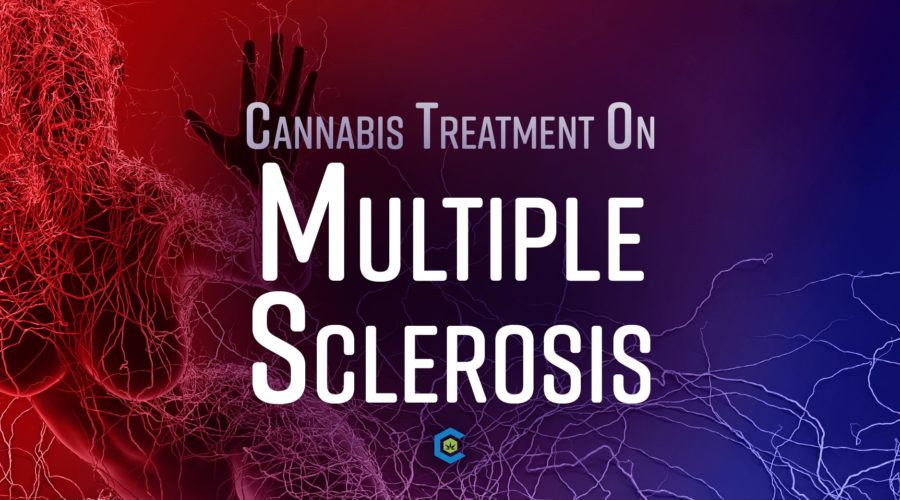Multiple Sclerosis: An Evidence-Based Review in the Remarkable Treatment of Cannabinoid Medicine
by Gaurav Dubey (MS Biotechnology)
Support MS Patient Steve Jones at this Years NYE Benefit
This new year means many exciting, new opportunities for the IL cannabis community. With adult use recreational cannabis legalization just around the corner, 2020 really means 420 all year round…and it’s gonna be lit!
In celebration of legalization for the start of the new year, we wanted to collectively give back to the community by raising funds to donate the proceeds of the event to a medical cannabis patient, Steve Jones, who is disabled and saving for a handicap accessible Van.
Steve “Security” Jones is an Illinois Medical Cannabis patient diagnosed with Multiple Sclerosis in 2000 when he had his life taken away, un-able to walk, let alone work. Since then cannabis medical cannabis has given Steve a life once again.
This years venue is patient friendly and all guests must be 21 years of age or older. Dab and herbal vaporizer stations will be available for patients to demo!
To learn how cannabis and cannabinoid therapy can help treat multiple sclerosis (MS), read on below!
Multiple sclerosis (MS) is a degenerative condition characterized by central nervous lesions and chronic inflammation.1 It is a lifelong condition for which there is no cure, however, proper treatment can attenuate its progression.2 Recent research suggests that medical cannabis may be a novel treatment in combating this progressive and challenging illness.3 While the etiology and pathogenesis of multiple sclerosis remains unclear, it has been established that the cause is likely multifactorial and include “genetic predisposition together with environmental factors such as exposure to infectious agents, vitamin deficiencies, and smoking.”1 Recent evidence suggests that cannabinoid therapy may be efficacious in treating spasticity and pain associated with multiple sclerosis.3

Recent evidence suggests that cannabinoid therapy may be efficacious in treating spasticity and pain associated with multiple sclerosis.3
This blog will explore the current clinical landscape in the treatment of MS with medical cannabis by reviewing the currently available evidence. As cannabis use rapidly becomes more prevalent across the globe, further research and public education will be imperative for conscious, mindful use of this medicine in the treatment of illness.
Also – while you are here – Check out our upcoming New Year’s Eve Benefit & Celebration.
The Evidence Strongly Supports Cannabinoids for the Treatment of MS
Two recent high-quality systemic reviews determined that some of the strongest evidence supporting the medicinal benefits of cannabinoids for the treatment of neurological disorders actually comes from the treatment of MS symptoms with cannabis.3 Studies show 20–60% patients with MS are currently using cannabis and 50–90% would consider using it if it were more easily accessible and/or legal.4 As legalization on the state level spreads across the nation, this number is expected to rise dramatically. The National Multiple Sclerosis Society also supports medical cannabis use in instances where patients have untreatable MS and are in lawful states.

How Medical Cannabis Can Help Treat MS Symptoms
The cannabis plant is incredibly diverse contains varying permutations of many biologically active compounds, including over 100 different cannabinoids and many more terpenoids that work together to produce its effects.4 Two compounds that have received much attention and have been thoroughly investigated are THC (Δ9-tetrahydrocannabinol) and CBD (cannabidiol). THC is well known for producing the psychoactive effects of cannabis as well as “muscle relaxant, antiemetic, and appetite-stimulating effects”.5 These effects can be very beneficial to the MS sufferer. Another powerfully therapeutic cannabinoid is CBD due to its own medicinal properties including anti-inflammatory, antioxidative and antiemetic properties.6 In fact, there is further evidence that suggests CBD may be a novel treatment in helping MS patients regain mobility.
CBD May Help Improve Mobility in MS Patients
MS is a “demylenating” disease that erodes the protective sheath around neurons in the body. This leads to fatigue, chronic pain, muscle spasticity and depression, which often limits physical activity and mobility in patients.6 Cannabidiol has shown efficacy in relieving these symptoms and indirect evidence shows this has helped patients regain their mobility.7

Image Credit: (Rudroff & Sosnoff, 2018)
Oral Cannabis Extract May Help Urinary Symptoms in MS Patients
Findings from a 2014 systemic review suggest oral cannabis extract (OCE) may be helpful in treating bladder dysfunction in MS patients.8 Another study tested oral cannabis extract versus placebo for 10 weeks in MS patients and while the results were not statistically significant, the data does suggest that OCE may indeed be helpful in mitigating these symptoms.9
The MS Foundation: Advocating for More Research & Access to Cannabis
The Multiple Sclerosis Society supports the ability of patients living with MS to make informed choices about their treatment strategy with their health care providers. This includes the use of medical cannabis, which the MS society actively advocates for and calls for further research to be able to more effectively understand the role of medical cannabis in treating MS symptoms and possibly attenuating disease progression.10 The society encourages an end to federal prohibition to remove barriers preventing future research into cannabinoid therapy and legalization on the state level to expand access for suffering patients.

Prohibition Presents Significant Barriers Preventing Good Cannabis Research
Decades of misinformation campaigns and federal prohibition have unfortunately seriously stymied progress into cannabis research. Currently, one of the most significant barriers towards studying a schedule I substance such as cannabis is obtaining approval from institutions such as NIDA (National Institute of Drug Abuse). This is no simple task since this agency generally only approves studies into the negative and harmful effects of controlled substances, thus preventing investigations into the positive and therapeutic effects of medical cannabis. This is one primary reason the MS Society and other medical cannabis advocates are calling for an end to federal prohibition as the current policy roadblocks are seriously hindering progress into cannabinoid science.
Closing Thoughts: A Need For Further Education & More Research
It is estimated that MS currently affects 2.3 million people across the world.6 As stated before, unfortunately, a cure for this disease still does not exist. When it comes to cannabis, MS is one condition in particular that the clinical evidence strongly suggests can benefit by cannabinoid therapy. Nevertheless, there is a strong need for further investigation into this field of study to better elucidate the physiological and pharmacological mechanisms involved when treating MS with cannabis. Finally, it is equally important for better public education campaigns to help inform MS patients of their treatment options and about how medical cannabis may help them achieve a better quality of life.
More About Our Exciting NYE Benefit
***SPONSORSHIP OPPORTUNITIES AVAILABLE***
Please send us an email at: [email protected]
Please Consume Responsibly
Patient Friendly Venue
Tickets, Includes food and drinks (Water, Soda).
$30 General Access
$45 Gold Access
$60 Platinum Access
$160 VIP Access
BYOB/BYOC
Food will be provided by:
AirMid Outreach
Apple Jack’s Jumpin Jive
Music:
DJ Andrew Dabandons
Raffles:
AirMid Beauty Gift basket
AirMid Chill Gift Basket
AirMid Pet Basket
Professor Glass – American Glass by Pete River
Im A Beast Apparel
Purple Herb Tees – T Shirts
Entourage Clinical Services – CBD/Terpene Basket
Drizzledab – CBD/Terpene Basket
V.I.P. Lounge
Infusion Demo:
How to make your own pain patches!
Hotel Accommodations with shuttle service:
$89 – Residence Inn By Marriott
Directly call Marriott Reservations at 1(800) 331-3131 or (847) 689-9240 on or
before Tuesday, December 10, 2019, (the “Cutoff Date”) to make your sleeping
room reservations. Please identify yourself as part of the NYE Benefit Room
Block group staying at the Residence Inn Chicago Waukegan/Gurnee, located at
1440 South White Oak Drive, Waukegan, IL 60085.
All reservations must be guaranteed with a major credit card. The hotel will
not hold any reservations unless secured by
credit card.
Reservations for all guests must be received on or before Tuesday, December 10,
2019, (the “Cutoff Date”). After the Cutoff Date, the hotel will release any
unreserved rooms for general sale and, in the hotel’s discretion, will accept
reservations at NYE Benefit Room Block’s group rate, on a space and rate
available basis
Works Cited
1. Ghasemi, N., Razavi, S. & Nikzad, E. Multiple Sclerosis: Pathogenesis, Symptoms, Diagnoses and Cell-Based Therapy. Cell J. Yakhteh 19, 1–10 (2017).
2. Can marijuana help treat MS? Medical News Today https://www.medicalnewstoday.com/articles/323948.php.
3. Rice, J. & Cameron, M. Cannabinoids for Treatment of MS Symptoms: State of the Evidence. Curr. Neurol. Neurosci. Rep. 18, 50 (2018).
4. Rudroff, T. & Honce, J. M. Cannabis and Multiple Sclerosis—The Way Forward. Front. Neurol. 8, (2017).
5. Leussink, V. I. et al. Symptomatic therapy in multiple sclerosis: the role of cannabinoids in treating spasticity. Ther. Adv. Neurol. Disord. 5, 255–266 (2012).
6. Rudroff, T. & Sosnoff, J. Cannabidiol to Improve Mobility in People with Multiple Sclerosis. Front. Neurol. 9, (2018).
7. Novotna, A. et al. A randomized, double-blind, placebo-controlled, parallel-group, enriched-design study of nabiximols* (Sativex(®) ), as add-on therapy, in subjects with refractory spasticity caused by multiple sclerosis. Eur. J. Neurol. 18, 1122–1131 (2011).
8. Koppel, B. S. et al. Systematic review: Efficacy and safety of medical marijuana in selected neurologic disorders. Neurology 82, 1556–1563 (2014).
9. Kavia, R. B. C., De Ridder, D., Constantinescu, C. S., Stott, C. G. & Fowler, C. J. Randomized controlled trial of Sativex to treat detrusor overactivity in multiple sclerosis. Mult. Scler. Houndmills Basingstoke Engl. 16, 1349–1359 (2010).
10. Marijuana FAQs. National Multiple Sclerosis Society http://www.nationalmssociety.org/Treating-MS/Complementary-Alternative-Medicines/Marijuana/Marijuana-FAQs.


